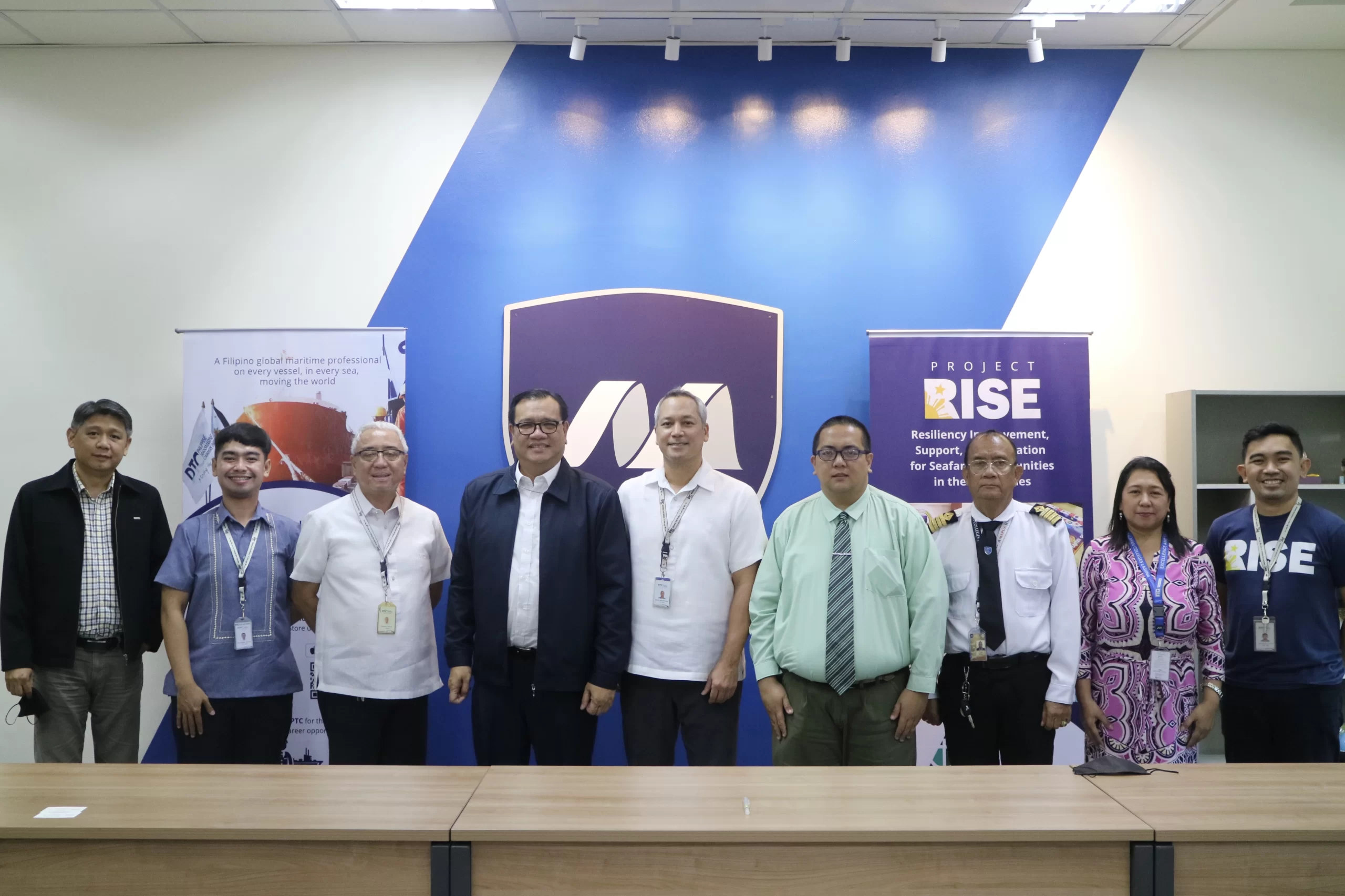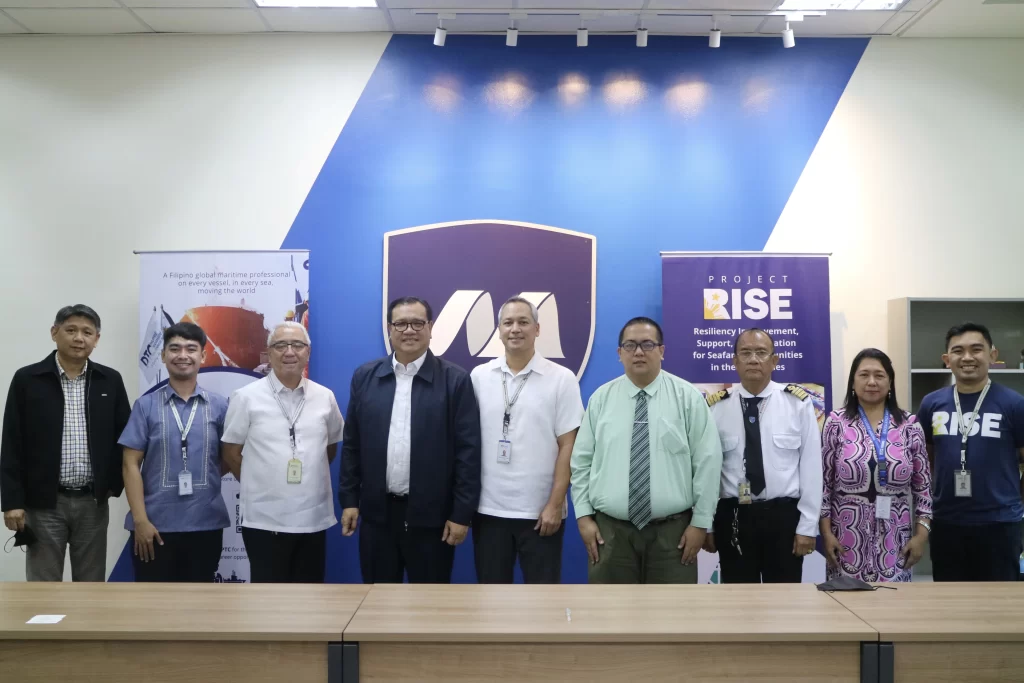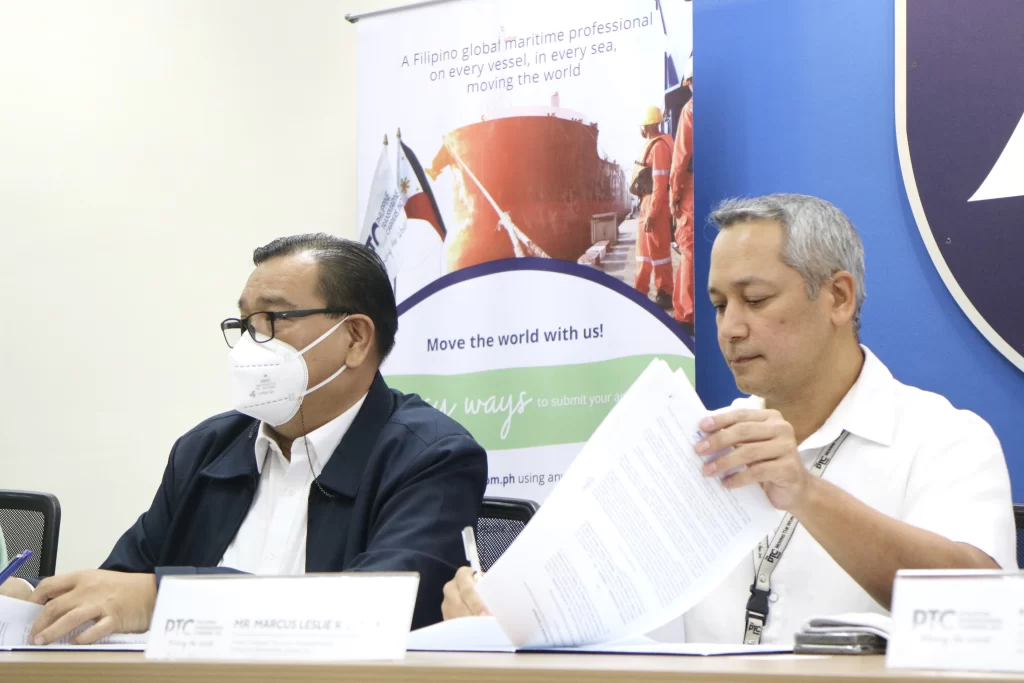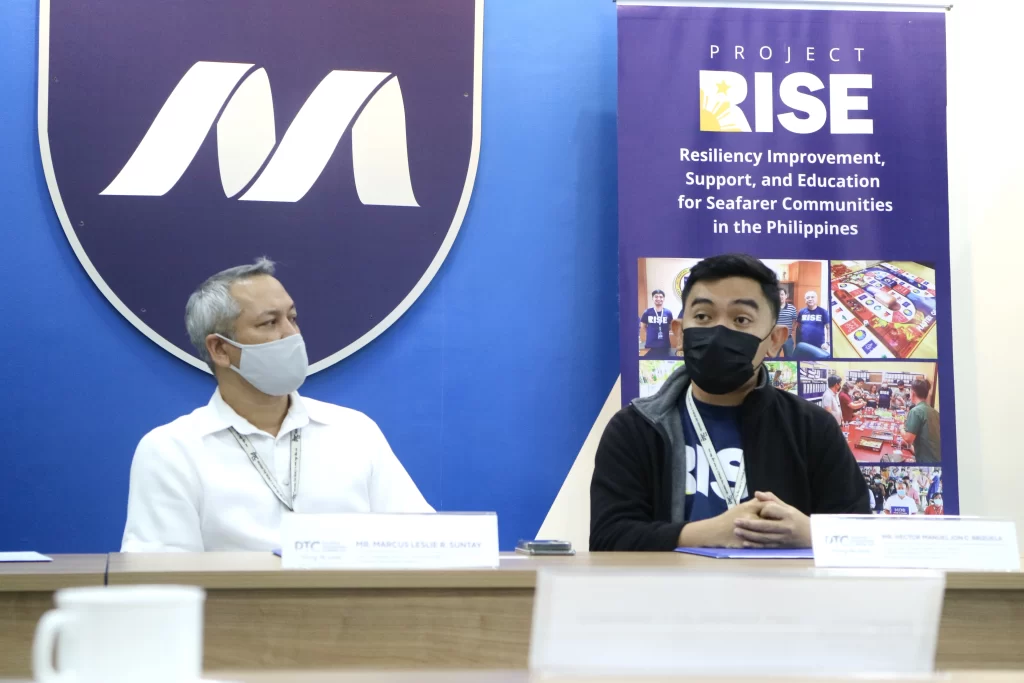PTC’s Project RISE signs MOA with Mapúa MCL
To eradicate the adverse effects of disasters, the Philippine Transmarine Carriers, Inc. (PTC), an organization that aims to harness the expertise of current and future maritime professionals by working together in sharing knowledge and skills with communities in terms of disaster preparedness, community disaster resilience, and risk management, has partnered with Mapua Malayan Colleges Laguna to facilitate the implementation of Project RISE (Resiliency Improvement Support and Education for the Seafarer Community in the Philippines). A Memorandum of Agreement (MOA) was forged.
The project consists of the following components: (1) Training program – Citizens Training Program & Master Training Program; (2) Project RISE mobile app that will monitor the weather and calamities that would affect the City of Cabuyao; (3) Master of Disaster (MOD) – a board game about that teaches how to prepare and actively respond to different calamities in the Philippines; (4) PTC-RISE MCL Volunteers – MCL student volunteers through the Mapúa-PTC College of Maritime Education and Training (Mapúa-PTC CMET); and (5) Integration of modules on Disaster Risk Reduction and Management (DRRM) into the National Service Training Program (NSTP) courses to mainstream topics about climate change adaptation and disaster risk reduction.
Through the Center for Service-Learning and Community Engagement (CSCE), Project RISE aimed to develop the capacity, initially of the MMCL students, to respond to disaster situations of the most disaster-prone communities in the City of Cabuyao. the Project RISE (Resiliency Improvement Support and Education for the Seafarer Community in the Philippines) Student Leaders and Facilitators’ Orientation. It highlighted the importance of learning disaster risk reduction management as all share the same space, environment, and natural resources. Student Leaders and Facilitators’ Orientation. It highlighted the importance of learning disaster risk reduction management as all share the same space, environment, and natural resources.
The following were the phases of the project: conduct of Master Trainer Program (MTP) and Citizen Trainer Program (CTP); Project RISE mobile application; application of the Master of Disaster (MOD) board game; pooling of Project RISE – MMCL Volunteers; integration of DRRM to NSTP (National Service Training Program) courses that has DRRM as one of its topics; and Project RISE Cabuyao Volunteer Network.
The PTC-MMCL project partnership also brought in the concept of gender-based violence in emergencies (GBViE) as an equally important component of disaster risk and resilience. The Master Trainer Program orientation highlighted the most important concepts related to DRRM and GBViE, the latter giving a gender lens in the understanding of DRR. The MTP was conducted hybrid with 150 participants (students and members of the MMCL faculty and departments) and an estimated 60 participants in zoom. The student participants cascaded the DRRM and GBViE lessons to their fellow students and members of their respective communities as part of their project commitments. As incentive, the PTC provided each participant with a set of safety kits that consisted of a vest and flashlight among others





